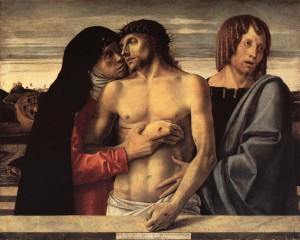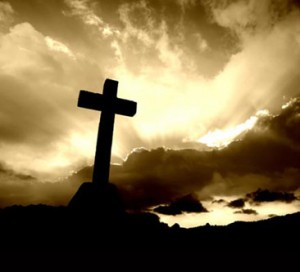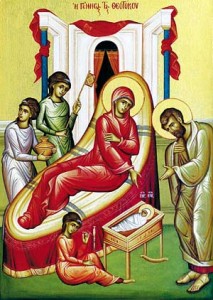 Today’s Gospel relates a somewhat embarrassing truth about the Apostles James and John, the sons of Zebedee:
Today’s Gospel relates a somewhat embarrassing truth about the Apostles James and John, the sons of Zebedee:
When the days for Jesus to be taken up were fulfilled,
he resolutely determined to journey to Jerusalem,
and he sent messengers ahead of him.
On the way they entered a Samaritan village
to prepare for his reception there,
but they would not welcome him
because the destination of his journey was Jerusalem.
When the disciples James and John saw this they asked,
“Lord, do you want us to call down fire from heaven
to consume them?”
Jesus turned and rebuked them,
and they journeyed to another village.
– Luke 9:51-56
These two brothers were also known as “Boanerges” – the “sons of thunder”. And, no, it’s not because they had gas. It seems they had a bit of an anger problem – their passion for our Lord led them to want to “zap” those who didn’t accept him.
But Jesus knew about their faults, and called them to be his followers anyway. That’s because he knew that he could transform their faults into strengths. Francis Fernandez, in his magnificent daily devotional, “In Conversation With God”, relates an anecdote about Saint John in later life. St Jerome wrote that the aged Apostle, when speaking with his fellow believers, used to repeat, again and again, “Little children, love one another”. His listeners, perhaps a bit miffed that someone who knew our Lord personally didn’t seem to have any fresh homiletical material, asked him, “Why do you keep on repeating the same thing all the time?” John replied, “Because if we only do this one thing, it will be enough”. John’s desire to call down fire from heaven was changed to a living flame of love.
Jesus’ teaching on love being the hallmark of a Christian’s life – even for one’s enemies – eventually sunk into John’s ears, especially when he saw it in praxis at the foot of the cross, along with Mary. And when he was chosen by the Master to take care of his Mother, John no doubt was privy to even more lessons on what it means to love, from the person who knew Jesus best.
If Jesus could change this angry young man into “the Apostle of love” – his Gospel and New Testament letters are rife with this theme – imagine how Jesus can turn our weaknesses into strengths, if we stay close to him on the Way.




 Today the Church celebrates the feast of the birth of Mary of Nazareth. Saint Peter Damian captured the elation Christians should feel on this day: “Just as Solomon and the chosen people celebrated the dedication of the Temple with great and solemn sacrifice, so should we be filled with joy at the birth of Mary. Her womb was a most holy temple. There, God received his human nature and thus entered visibly into the world” (Sermon 45).
Today the Church celebrates the feast of the birth of Mary of Nazareth. Saint Peter Damian captured the elation Christians should feel on this day: “Just as Solomon and the chosen people celebrated the dedication of the Temple with great and solemn sacrifice, so should we be filled with joy at the birth of Mary. Her womb was a most holy temple. There, God received his human nature and thus entered visibly into the world” (Sermon 45).